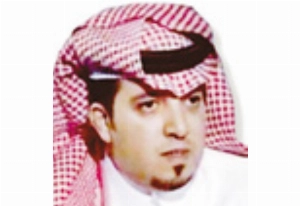THE biggest, greatest, and most important gift that destiny can present to any people in this world is a “brave leader who is preoccupied with reforming everything.”
The courage of leaders alone does not serve the people but could lead even to perishing, and the desire for reform without courage does not serve either. If the leader combines courage with the obsession of reform, as well as true will for the rule of justice, transparency, and human rights in parallel with sustainable development, then it is time for his people to move to the future with confidence and speed racing with history. The glories of nations of this sort have always been made specifically by great leaders.
Every new day in Saudi Arabia confirms that the destiny’s gift to it, represented by the reformist Crown Prince Muhammad Bin Salman, is the greatest of all the gifts at this epoch of history. He is a brave leader, obsessed with reforming everything. When I say “reform everything,” I mean by it the exact literal meaning without any exaggeration. Ever since the launch of Saudi Arabia’s Vision 2030, the whole world is following up on the volume of reform initiatives taken place in the country.And the interesting thing is that whenever Riyadh’s opponents bet that this reform movement is about to end or enter a stagnation phase, they are surprised to see that the movement is still in its infancy and that it is a reform process, renewable and endless.I am writing this after learning what the Crown Prince said recently about what could be described as a real legislative revolution in Saudi Arabia — a revolution toward consolidating the principles of justice, transparency, and protection of human rights while achieving comprehensive development, apart from enhancing the Kingdom’s international competitiveness through clear and specific procedural and objective institutional references.In his statement, the Crown Prince announced four draft legislation that will be implemented during this year, and that are Civil Status Law, Civil Transactions Law, Penal Law for Discretionary Penalties, and the Law of Evidence. He explained that these laws will represent a new wave of reforms that will contribute to the prediction of court rulings, and increase the level of integrity and efficiency of judicial institutions as they are a basic pillar for achieving the principles of justice.
He said that these will help clarify the lines of accountability and ensure the consistency of legal references in a way that limits widespread discrepancies in court rulings.The Crown Prince emphasized that the absence of applicable legislation has led to discrepancies in court rulings and a lack of clarity in the principles governing facts and practices. That resulted in prolonged litigation not based on legal texts. In addition, the absence of a clear legal framework for private and business sectors has led to ambiguity with respect to obligations.Courage is required to admit defects and carry out its inevitable correction, and this is what confirmed in the statement of the Crown Prince, who addresses his people with complete sincerity. Other leaders in the world can present their reforms without addressing or clearly indicating the existence of the defects for various reasons, but Crown Prince Muhammad Bin Salman has his clear style since the launch of Vision 2030.He ensures the involvement of his people and everyone interested to know and confidently presents to everyone the reasons for making any reform decision. This is because, as the Crown Prince said about himself, “he works to achieve the aspirations of a great king and great people in a great country.”And truly, this is what enables nations to move forward on the path of a renaissance.
